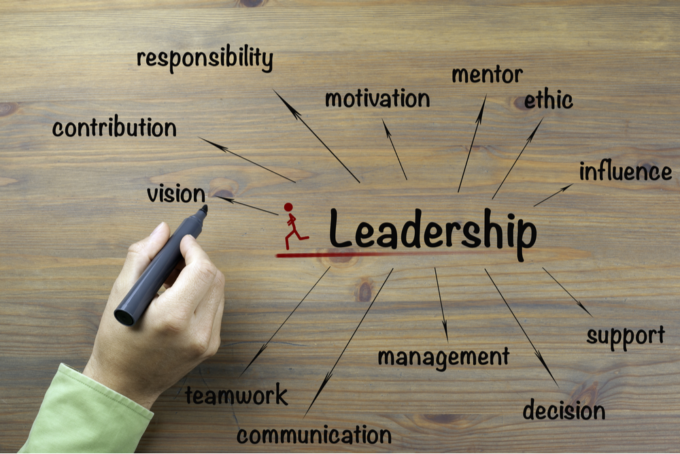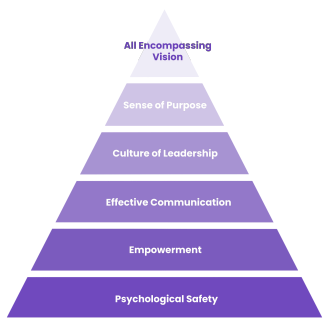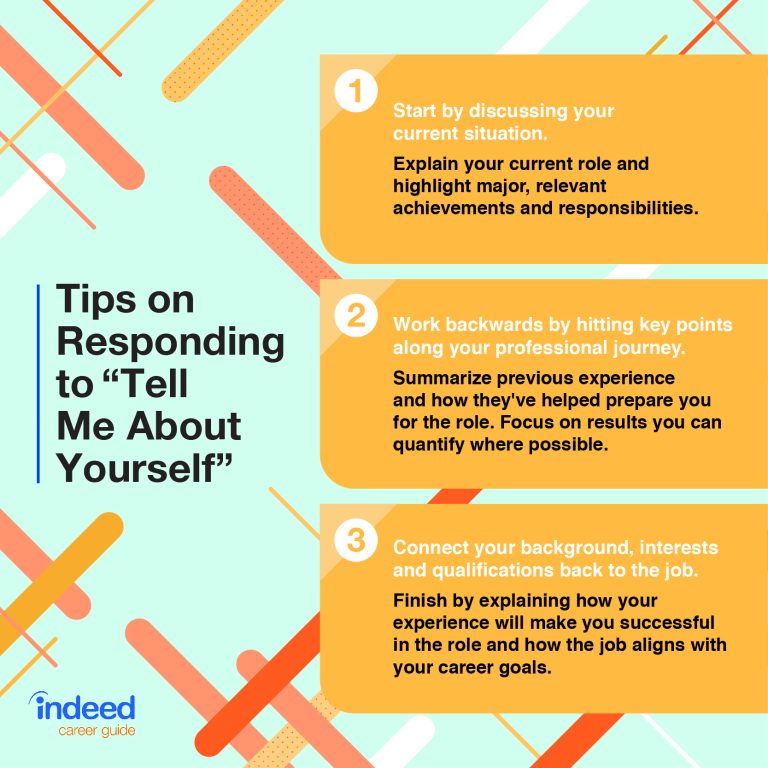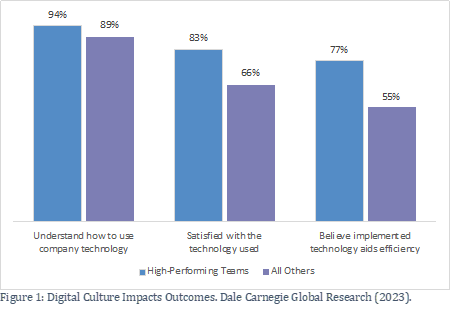Important Leadership Skills for Workplace Success
Leadership skills are crucial for workplace success and include effective communication, problem-solving, decision-making, and the ability to motivate and inspire others. In today’s dynamic and competitive business environment, possessing these skills is essential for leading teams and achieving organizational goals.
Good leaders have the ability to guide their team through challenges, encourage collaboration, and foster a positive work culture. These skills not only enable leaders to effectively manage their team but also enhance employee engagement and productivity. By constantly developing and honing these skills, leaders can create a harmonious and high-performing workplace that ultimately drives success.
Effective Communication
Effective communication is a crucial leadership skill for workplace success, enabling leaders to build strong relationships, convey information clearly, and inspire their teams. By fostering open dialogue and active listening, leaders can drive collaboration and productivity, ultimately driving the organization towards its goals.
Effective communication is a crucial leadership skill that plays a vital role in workplace success. As a leader, your ability to communicate clearly and effectively can influence the productivity, morale, and overall success of your team. In order to excel in this area, it is important to focus on a few key aspects of effective communication: active listening, clear and concise messaging, and non-verbal communication.Active Listening
Active listening is an essential component of effective communication that involves fully engaging with the speaker and demonstrating genuine interest in their message. This means avoiding distractions and paying close attention to both verbal and non-verbal cues. By actively listening, you can ensure that you understand the speaker’s perspective and minimize misunderstandings.Clear And Concise
When it comes to communication, clarity is key. Clear and concise messaging helps to avoid confusion and ensures that your intended message is properly understood. Avoid using jargon or complex language that may hinder comprehension. Instead, focus on using simple and precise language that conveys your message in the most straightforward manner possible.Non-verbal Communication
Non-verbal communication plays a significant role in conveying messages and establishing rapport with others. It includes facial expressions, body language, gestures, and tone of voice. Paying attention to your own non-verbal cues and being aware of the non-verbal cues of others can enhance understanding and strengthen the connection between you and your team members. In conclusion, effective communication is a critical skill for leaders to master. By practicing active listening, using clear and concise language, and being mindful of non-verbal cues, you can effectively communicate your ideas, build strong relationships, and achieve workplace success.
Credit: www.greatplacetowork.ca
Problem-solving Skills
In today’s fast-paced and complex work environments, having strong problem-solving skills is crucial for effective leadership. As a leader, you will inevitably face numerous challenges and obstacles that require quick thinking and decisive action. By developing and honing your problem-solving skills, you can navigate these challenges with confidence and guide your team towards success.
Analytical Thinking
Analytical thinking is the ability to gather and assess information, identify patterns, and make logical connections. It involves breaking down complex problems into smaller parts and analyzing each component systematically. A leader with strong analytical thinking skills can approach challenges with a strategic mindset, enabling them to identify the root cause and develop effective solutions.
To enhance your analytical thinking skills:
- Practice breaking down problems into smaller, manageable tasks.
- Engage in critical thinking exercises and puzzles to sharpen your problem-solving abilities.
- Seek feedback and different perspectives to broaden your thinking and challenge your assumptions.
Decision Making
Effective decision making is a crucial leadership skill that involves evaluating options, considering their potential outcomes, and selecting the best course of action. As a leader, your decisions will impact your team’s performance and the overall success of your organization. By developing strong decision-making abilities, you can make informed choices that align with your vision and objectives.
To improve your decision-making skills:
- Gather relevant information and consider both quantitative and qualitative factors.
- Identify potential risks and evaluate their potential impact.
- Consider the perspectives and opinions of your team members before making a final decision.
Creativity
Creativity is an essential leadership skill that allows you to think outside the box, generate innovative solutions, and adapt to changing circumstances. By fostering a creative mindset, you can encourage your team to explore new ideas and approaches, leading to increased efficiency and productivity.
Here are some ways to enhance your creativity:
- Embrace diversity of thought and encourage diverse perspectives within your team.
- Engage in brainstorming sessions to generate a wide range of ideas.
- Stay curious and open-minded, continuously seeking new knowledge and inspiration.
By developing and refining these problem-solving skills—analytical thinking, decision making, and creativity—you can enhance your effectiveness as a leader and drive workplace success. Embrace these skills, continuously sharpen them, and empower your team to overcome challenges and achieve exceptional results.
Adaptability
Adaptability is a crucial leadership skill for success in the workplace, enabling leaders to navigate change and effectively respond to new situations. It allows them to remain agile, embrace innovation, and lead their teams through challenges with resilience and flexibility.
Flexibility
Being flexible is a vital leadership skill for workplace success. In today’s fast-paced and ever-changing business landscape, the ability to adapt quickly and embrace change is crucial. Flexibility allows leaders to navigate unpredictable situations, adjust strategies, and find innovative solutions. It involves thinking on your feet, being open to new ideas, and being willing to step outside of your comfort zone. By remaining flexible, leaders can effectively lead their teams through transitions and uncertainty.Open-mindedness
Open-mindedness is another essential leadership skill that goes hand in hand with adaptability. As a leader, having an open mind means being receptive to different perspectives, ideas, and feedback. It helps foster a culture of inclusivity, collaboration, and creativity within the workplace. Open-minded leaders are willing to listen to their employees, consider alternative viewpoints, and make decisions based on objective analysis rather than personal biases. By embracing open-mindedness, leaders create an environment where everyone feels valued and encouraged to contribute their unique insights.Resilience
Resilience is a key attribute for leaders who aim to succeed in the face of adversity. In today’s challenging and unpredictable business environment, setbacks and failures are inevitable. However, resilient leaders view such setbacks as learning opportunities and remain steadfast in their pursuit of goals. They bounce back from setbacks quickly, maintaining a positive outlook and motivating their team to do the same. Resilient leaders understand that resilience is not just about personal strength but also about creating a resilient organization that can adapt and thrive in the face of challenges.Team Building
Effective team building requires strong leadership skills. Leaders who possess qualities like effective communication, empathy, and problem-solving can foster a positive work environment, boost morale, and drive workplace success.
Building Trust
Building trust is an essential aspect of team building in the workplace. Trust forms the foundation of strong and successful teams, fostering effective communication and collaboration. When team members trust one another, they feel comfortable discussing ideas, sharing feedback, and taking ownership of their work. To build trust within a team, leaders can:- Promote transparency by providing clear and open communication about goals, expectations, and challenges.
- Encourage team members to share their opinions and ideas, creating an environment where everyone feels heard and valued.
- Lead by example and demonstrate integrity, honesty, and reliability in their actions and decision-making processes.
- Recognize and celebrate individual and team achievements, fostering a positive atmosphere and reinforcing trust.
- Address conflicts and concerns promptly and openly, promoting a culture of trust and resolving any issues before they escalate.
Collaboration
Collaboration is key to harnessing the diverse skills and knowledge of team members towards achieving collective goals. By encouraging collaboration, leaders foster creativity, innovation, and increased productivity within the workplace. To promote collaboration within a team, leaders can:- Create opportunities for team members to work on projects together, encouraging knowledge sharing and building mutual respect.
- Establish clear roles and responsibilities, ensuring that each team member understands how their contributions contribute to the overall success.
- Encourage open and active communication, promoting the exchange of ideas and perspectives.
- Implement collaborative tools and technologies that facilitate seamless information sharing and project management.
- Recognize and appreciate individual contributions as well as the collective efforts of the team, fostering a collaborative mindset.
Conflict Resolution
Conflict is a natural part of working in teams, but effective leaders understand the importance of addressing and resolving conflicts promptly and constructively. By implementing conflict resolution strategies, leaders can turn conflicts into opportunities for growth and stronger team dynamics. When faced with conflicts, leaders can:- Encourage open and respectful dialogue, providing a safe space for team members to express their concerns and perspectives.
- Listen actively and empathetically to all parties involved, seeking to understand their viewpoints and underlying interests.
- Find common ground and facilitate compromise, promoting win-win solutions that satisfy both individual and team needs.
- Mediate conflicts impartially, ensuring fairness and objectivity in the resolution process.
- Provide ongoing support and follow-up to ensure conflicts are fully resolved and prevent them from recurring.
Empathy And Emotional Intelligence
Empathy and emotional intelligence are critical leadership skills that contribute to workplace success. By understanding others, managing emotions, and building relationships, leaders can create a positive and productive work environment. Let’s explore each of these skills in more detail:
Understanding Others
Understanding others is an essential leadership skill that involves being able to put yourself in someone else’s shoes. By empathizing with your team members and colleagues, you gain valuable insight into their perspectives, experiences, and challenges.
This skill requires active listening and being attentive to non-verbal cues. It’s about recognizing and respecting diverse viewpoints and finding common ground. When leaders understand others, they can make more informed decisions and foster collaboration.
Managing Emotions
Effective leaders possess the ability to manage their own emotions and the emotions of others. Emotional intelligence allows leaders to remain calm and composed, even in challenging situations, and it inspires confidence in their team.
Leadership is about leading by example, and managing emotions sets the tone for the entire workplace. By displaying emotional intelligence, leaders promote open communication and create a supportive environment where everyone feels valued and understood.
Building Relationships
Building relationships is a vital leadership skill that involves forming meaningful connections with team members, colleagues, and stakeholders. When leaders invest time and effort into building relationships, they foster trust, loyalty, and collaboration within the workplace.
Effective relationship-building requires active engagement, encouraging open dialogue, and supporting individual growth. It involves being approachable and creating a safe space for everyone to share ideas and concerns.
By prioritizing empathy and emotional intelligence, leaders can create a positive work environment that promotes teamwork, productivity, and overall success.
:max_bytes(150000):strip_icc()/top-leadership-skills-2063782_final-5b3e6be646e0fb0036272f42-5bbf7e0246e0fb0026d6416a.png)
Credit: www.thebalancemoney.com

Credit: www.linkedin.com
Frequently Asked Questions Of Important Leadership Skills For Workplace Success
What Are The 7 Skills Of Effective Leadership?
The 7 skills of effective leadership include communication, adaptability, self-awareness, resilience, empathy, problem-solving, and vision. Effective leaders possess these skills to inspire and guide their teams, while fostering positive relationships and driving success.
What Are Three Necessary Leadership Skills That Are Essential For Workplace Success?
Three necessary leadership skills for workplace success are effective communication, decision-making, and problem-solving. These skills enable leaders to communicate their vision, make informed choices, and find solutions to challenges in a fast-paced and changing environment.
What Are The Skills Of Successful Leadership?
Successful leadership skills include effective communication, strategic thinking, problem-solving, adaptability, and inspiring others.
Conclusion
Developing strong leadership skills is crucial for achieving workplace success. Effective leaders have the ability to inspire and motivate their team members, foster a positive work environment, and drive organizational growth. By honing skills such as communication, adaptability, empathy, and decision-making, leaders can navigate various challenges and lead their teams towards success.
Remember, leadership is an ongoing journey of growth and learning. So, keep investing in your leadership development to unlock your full potential as a leader.



